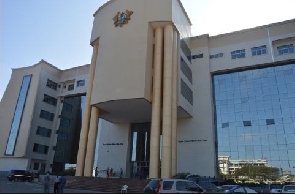The heightened dependency on digital infrastructure resulting in more time spent online, spread of the virus, fear and uncertainty in the midst of COVID-19, has created fertile ground for cybercrime experts to use sophisticated, complex and innovative tactics to stay ahead of their targets.
In a webinar presentation to members of the Ghana UK Chamber of Commerce organised under the theme ‘The importance of Cyber Security during COVID-19’, Bernard Acquah, Chief Information Officer of MTN Ghana, said COVID-19 has presented attackers with an opportunity to spread malware through emails that feed on concerns about the disease.
Some of the attacks include registration of new domain names containing wording related to coronavirus or COVID-19, and attacks against newly (and often rapidly) deployed remote access and teleworking infrastructure. He said, for example, since beginning of the year 2020 more than 4,000 coronavirus-related domains have been registered worldwide.
Mr. Acquah admonished Internet users, saying: “In addition to washing your hands after every physical contact to prevent the spread of COVID-19 and using an appropriate alcohol-based cleaning solution on your phone, keyboard, game controllers and remote controls, take the time to review your digital hygiene habits. Check that you have a long, complex router password for your home Wi-Fi and also ensure that system firewalls are active on your router.
“You have to ensure you are not reusing passwords across the web (a password manager is a great investment). Also, invest and strengthen your Spam Filters and use a reliable Virtual Private Network (VPN) for Internet access wherever possible.”
He urged participants to pay attention to only trusted sources of information received regarding data on spread of the COVID-19 virus and its impact. He said IT experts are advised to update their system software and applications regularly to patch any weaknesses that may be exploited.
The fight against cyber security threats in 2020 calls for the vigilance of System administrators with regard to the timeliness of patch deployments and quality of the patches they deploy. He said organisations will have to be wary of risks introduced by Work-From-Home arrangements and Internet-connected home devices that blur the lines in enterprise security – and more importantly, everyone needs to be aware of cyber-criminals and threat actors using machine learning and Artificial Intelligence to listen in on connected devices, such as smart TVs and speakers.
Staying digitally safe online in this season of COVID-19 is very critical. It is also important to note that the myths of IT security do not help in promoting cyber security.
Myths such as ‘Information security is just an IT issue’; ‘I have a MAC computer; they don’t get viruses’; ‘nobody wants to hack me! I’m not anybody important’; ‘my phone is safer than my computer or laptop because it can’t get hacked’; and ‘My Antivirus software on my computer is enough to protect me’ only makes one vulnerable to attacks and irreparable damages.
Click to view details



Business News of Monday, 11 May 2020
Source: Bernard Acquah

















